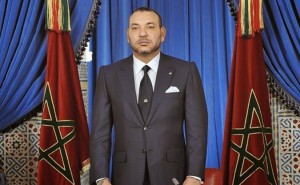Eurasia Review
By Said Temsamani
The Moroccan Press Agency (MAP) reported that “King Mohammed VI, Chairman of Al Quds Committee, an offshoot of the Organization of Islamic Cooperation (OIC), held phone talks with HM King Abdullah II Ibn Al Hussein of Jordan, Sheikh Tamim bin Hamad Al Thani, Emir of the State of Qatar, and Mahmoud Abbas, President of the State of Palestine.
These talks were an opportunity to consult on the illegal violations that have been committed recently by Israeli occupation forces against the blessed Al Aqsa Mosque and the city of Al Quds, the King’s Office said in a statement.
During these talks, the leaders of these countries reiterated their condemnation of these violations, notably the intrusion into the Al Aqsa Mosque and its esplanades, the destruction of parts of its facilities and the evacuation of the faithful and officials, while assaulting and prosecuting them, the statement said, adding that these violations are aimed at implementing the Israeli plan to divide the Al Aqsa Mosque, in time and space, and occupy it.
In this context, it was agreed to instruct the foreign ministers of these countries to coordinate the measures aimed at facing Israel’s intransigence and its obstinacy in continuing its flagrant violations of the resolutions of international legality, the statement concluded. ”
In fact those violent clashes between Palestinians and Israeli police at Jerusalem’s most sensitive holy site prompted that phone conversation between King Mohammed VI and the three Arab leaders. King Mohammed VI as President of Jerusalem Fund expressed his denunciation of the violence at the holy site. It is well known that unfortunately this site is a frequent flashpoint and its fate is a core issue at the heart of the Israeli-Palestinian conflict.
The director of Al-Aqsa Mosque, Omar Kiswani, said dozens of people had stayed at the mosque overnight. He said police “stormed” the area on Monday morning, firing tear gas and stun grenades and making several arrests.
U.N. Secretary-General Ban Ki-moon commented the latest violence escalation at the holy site saying : “once again underscored the importance of reaching a final status agreement through negotiations on all issues, including arrangements for the holy sites that are acceptable to all.”
In Washington, State Department spokesman John Kirby said the U.S. is “deeply concerned by the recent violence and escalating tensions” surrounding the Jerusalem holy site and called on all sides to “exercise restraint, refrain from provocative actions and rhetoric and preserve unchanged historic status quo” at the.
As the President of Jerusalem Committee, King Mohammed never ceases to deploy great efforts to iniate a series of social, educational projects in Jerusalem for the benefit of Muslim and christian Palestinians.
Also and for all the Holocaust denying and minimizing in the Arab world, there is one leader in the Arab world who speaks out unabashedly about the horrors of the Holocaust, writes the chairman of the U.S. Commission for the Preservation of America’s Heritage Abroad, in the Philadelphia Inquirer: “The leader of an Arab Muslim nation made some remarkable statements about the Holocaust – remarkable for their courage and respect for historical truth. In a largely unreported speech at the Royal Palace in Fez in 2009, Morocco’s King Mohammed VI called the Holocaust “one of the blots, one of the most tragic chapters in modern history.” The king added, “Amnesia has no bearing on my perception of the Holocaust, or on that of my people.”
Enjoying a wide credibility of the main conflicting parties in the Middle East, Morocco can be a major broker in the frozen peace process. Now the two main protagonists should show a total commitment to reach a comprehensive, just and lasting peace that would allow both Palestinians and Israelis to live side by side safely and in harmony. In the meantime, unnecessary provocation should stop and restraint should prevail.








